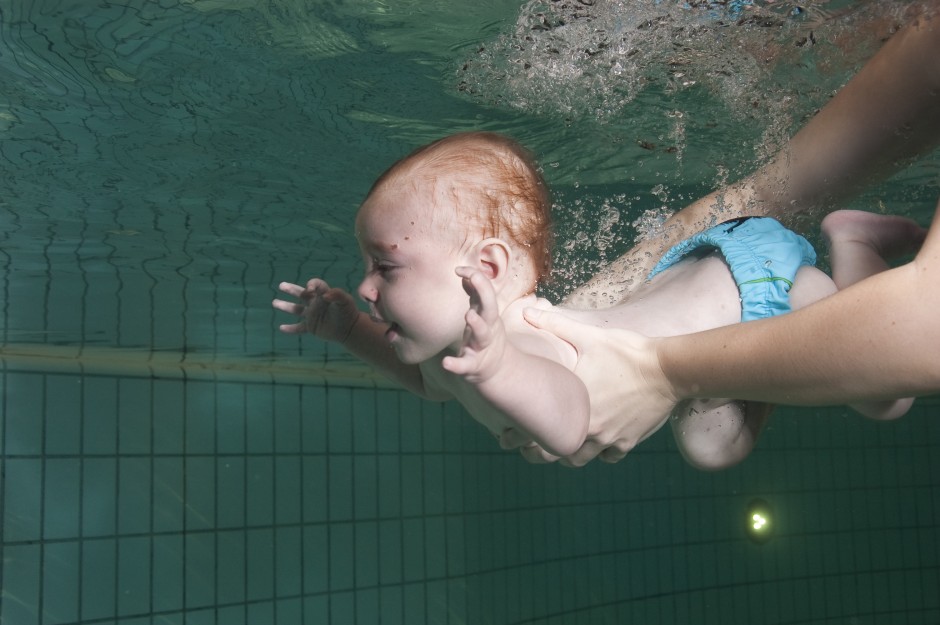How to deal with a misbehaving child in class
How to Handle Bad Student Behavior
Classroom
1 year ago
Future Educators
A classroom brings together all sorts of students, both well and badly behaved. The latter need special attention to usher them back on the path to good behavior. If you’re having a tough time with certain students in your class, try out the following strategies.
1. Bring difficult students close to you
Bring badly behaved students close to you. That is meant quite literally.
In a classroom setting, you’ll often find that the noisemakers and stubborn elements tend to sit at the back of the class, which offers anonymity and gives confidence to misbehave. Sitting such students at the opposite end of the room, somewhere close to the teacher’s desk, makes them easily stand out and deters such actions.
2. Talk to them in private
Calling out students in front of the class rarely proves helpful. It can breed resentment and further indiscipline. Also, don’t blame or reduce students in front of their friends. Rather, ask him/her to see you after the lesson, when you can look to find out the underlying reason behind the behavior.
– Reasons for bad behavior –
Acting up can be indicative of family problems back home. For example, the child’s parents may have divorced, meaning he or she is dealing with the challenge of co-parenting arrangements or being separated from a parent. Conflict can arise because issues to do with contact time and child support. Try to hold back from judgment since the misbehaving child could be going through some very difficult times in the background.
Children also misbehave out of a perceived need to impress peers. You could tackle that with a real-life example of how acting out in class is not the best solution. Rather, talking it out at the appropriate time is. While you’re at it, be sure to explain why what they did is wrong and the negative consequences of such actions.
3. Be the role model of the behavior you want
Enforcing rules in a classroom is hard if you don’t follow them yourself. Besides having clear policies or rules in place, you should be the first to practice what you preach. Otherwise, students will be inclined to follow your examples instead of your words. If you reprimand students for lateness, for example, be early every day.
Besides having clear policies or rules in place, you should be the first to practice what you preach. Otherwise, students will be inclined to follow your examples instead of your words. If you reprimand students for lateness, for example, be early every day.
4. Define right from wrong
At times, especially when dealing with young children, students might not know what constitutes unacceptable class behavior. They might know that playing “PokemonGo” in class is wrong or reading “Cinderella” in the middle of a lesson is not allowed. Help make the line between right and wrong clear to them.
5. Focus more on rewards than punishments
Students trying to avoid punishment is an effective strategy to ensure everyone is on their best behavior. But rewards are a more productive approach over the long run. Dangling the lure of incentives to students often gives them that push to, not only steer clear of rule infringements, but put their best foot forward.
Rewards could be anything from candy, a stuffed toy, or simple compliments to acknowledge their efforts. You can also make classroom activities so engaging that students don’t want to disrupt what is happening.
You can also make classroom activities so engaging that students don’t want to disrupt what is happening.
6. Adopt the peer tutor technique
No matter how friendly and accommodating you may try to be, sometimes a misbehaving student needs the shoulder of a peer to lean on. That person could be someone going through the same life experiences or simply a non-authoritative figure.
Using the peer tutor technique, you pair the well-behaved student (the “tutor”) with one not so well-behaved. While they are working on polishing their academics, the “learner” can also be getting a lesson on proper personal skills. It’s prudent you talk to the mentoring student and explain to him/her what you aim to accomplish and what he/she can do to help.
7. Try to understand
Sometimes, a student may be construed to be rude when they are actually abiding by a cultural practice or tradition. In some cultures, for example, it is prohibited to look adults in the eye. So when you’re telling a student to do so and is looking away or down at the ground, it might have something to do with that.
Before you straight away label any action as bad behavior, first get to the root of the matter. For all they know, you may be asking them to do something contrary to what they believe is right or proper.
Last, but certainly not least, never give up on a seemingly stubborn student who looks determined to work your every nerve. Don’t let up on the good fight until it is won. Sometimes that takes minutes, other times it takes weeks. Be patient and never let your frustrations get the better of you.
How to Handle School Behavior Problems
At some point as a parent, you will likely be faced with the dreaded email from your child’s teacher telling you that your kid has crossed the line and that you need to come in for another conference.
Or the principal will call to tell you that your teen has missed the last week of school altogether, unbeknownst to you.
Maybe you’ve discovered that your child’s grades have plunged from acceptable to barely passing.
What’s a parent to do? Carole Banks, MSW addresses the top four school problems parents struggle with the most.
1. Acting Out in School
When your child acts out in school, it can be worrisome, frustrating and embarrassing. On top of the actual misbehavior, you fear that he’ll make a bad name for himself—that his reputation as a troublemaker will follow him from grade to grade.
You may also feel judged—and blamed—by teachers and other parents for what your child does at school.
Related content: Acting Out in School: When Your Child is the Class Troublemaker
Some kids act out when they’re feeling left out or left behind. Make sure that your child is capable of doing the class work he is being asked to do, for example. Being behind (or ahead of) the class can create boredom, frustration, and anxiety—which may lead some kids to act out verbally or physically.
Don’t Punish Your Child Twice
Try to leave discipline for acting out at school to school officials—don’t punish your child twice.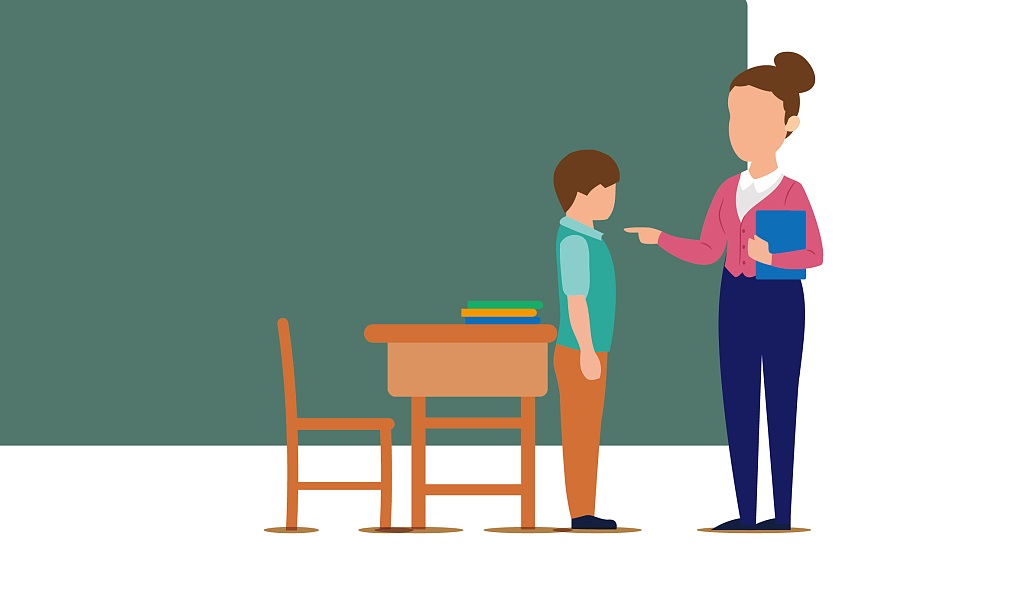 In most cases, letting the school hold your child accountable is enough. But in chronic or severe acting-out situations, it is important to work with the school to understand exactly what is going on. You may then need to work with some local support services to address the behavior.
In most cases, letting the school hold your child accountable is enough. But in chronic or severe acting-out situations, it is important to work with the school to understand exactly what is going on. You may then need to work with some local support services to address the behavior.
Related content: How to Give Kids Consequences That Work
Don’t Assume Your Child Will Figure Things Out on His Own
Sometimes parents assume that their kids will figure out things on their own. But if you’re dealing with a chronic issue, you have to face facts: your child has not figured it out by himself and he is not likely to do so. You need to help him.
So talk to the teacher—that’s your best first step. You need a sense of why he’s acting out and what’s happening in order to know how you can help your child change.
Pay close attention to what your child says at home. She should know that all experiences are okay to share.
A word of caution: one important lesson James Lehman teaches us in The Total Transformation® program is to support the school authorities in front of your child. If your child hears your criticism of school officials and her teachers, she is likely to be disrespectful to them in class—and also to you.
If your child hears your criticism of school officials and her teachers, she is likely to be disrespectful to them in class—and also to you.
2. Dropping Grades
If your child’s grades are dropping, rule number one is to become an investigator. In other words, really find out what’s going on with your child.
Is he having problems at home or with other kids at school? Is he having a tough time adjusting to middle school or high school? Are his study habits poor—and can you work on that together?
For some kids, learning disabilities and medical problems may play a role. And for still others, drug and alcohol use may be the cause of falling grades.
The main thing for you to do is find out the “why” and then come up with a plan to help your child. Here are some steps you can take immediately:
Meet with Your Child’s Teacher
Call your child’s teacher and ask for a meeting. Tell her what you are seeing at home—and then ask what she has observed in the classroom. Ask her for any ideas she might have to help your child get back on track.
Ask her for any ideas she might have to help your child get back on track.
Set up More Structure at Home
A common problem for many kids is a lack of structure in their after-school schedule. Make sure sports or other clubs do not come first, with homework being fit in at the end of the day (when your child is exhausted).
Prioritizing play before work teaches your child that play comes before work—and is therefore more important than work. Clubs or sports should not come before school work and family time for your child.
The bottom line is that schoolwork has to be prioritized, and a structure has to be set up so it isn’t squeezed in at the last minute.
Be Realistic in Your Goals
When you structure your child’s study time to help him bring his grades back to an acceptable level, be realistic in your goals. Remember, it took time for your child to get behind, so you need to allow time for him to catch up.
Get actively involved in your child’s homework by reviewing it and helping with study strategies. I also recommend that you try to be present during study time. I know that many parents work and can’t be at home with their children after school. As a working parent and grandparent myself, I completely understand and sympathize with that situation. If you or your spouse can’t be there, try to get your child into in an after-school program or ask another trusted adult to be there with them.
I also recommend that you try to be present during study time. I know that many parents work and can’t be at home with their children after school. As a working parent and grandparent myself, I completely understand and sympathize with that situation. If you or your spouse can’t be there, try to get your child into in an after-school program or ask another trusted adult to be there with them.
Don’t Restrict Your Child from Privileges Until His Grades Improve
Understand that restricting your child from all of his privileges until he brings his grades up usually backfires. In effect, you end up taking away the tool that you need to actually motivate your child to improve.
Instead, I recommend that you require your child to study for a certain amount of time each day to earn those extras that night. You do your homework, you get your privileges. This will teach your child the habits he needs to get better grades.
Talk to Your Child About What’s Going On
Have a frank conversation with your child about his grades. Say:
Say:
“Look, I’ve been letting you manage your homework on your own, but it’s not working. Now we’re going to set up a study time every day where I supervise your work. No phone and no internet during this time.”
“When your grades improve we can talk about letting you self-manage again. But in the meantime, we have to seriously set aside some time to work on this.”
And remember to ask your child about his day and show that you are interested. Ask questions that require a longer answer than “yes” or “no.” In parent coaching sessions, I’ve found that when parents really make a consistent effort to keep up with their kids, they are seldom caught unawares when it comes to dropping grades or poor school performance.
3. “I hate my teacher!”
Every so often, your child will have a teacher that he just can’t seem to get along with. Sometimes it’s a simple personality conflict. Other times, your child is having difficulty responding to authority. It is okay to validate how he feels about his teacher.
It is okay to validate how he feels about his teacher.
Allow your child to share with you what it’s like in class. Don’t tell him he’s wrong or that he shouldn’t feel a certain way. Once your child has been heard, he’ll be more receptive to hearing your ideas about what he can do to make the situation better.
But be careful, don’t agree with him and say, “Yeah, you’re right. Your teacher is a jerk.” When you undermine the teacher’s authority, you are giving your child permission to disrespect her.
Learning to Get Along
If your child is old enough, he has to learn to accept the fact that certain teachers require things that he might not agree with. It’s a fact of life that not every teacher is able to give your child what he would like to have. It’s a fact of life that some teachers are quite strict; they’re not warm and fuzzy.
As a parent, you definitely would not want to ask them to do their job differently. Instead, work on helping your child. Say something like:
Say something like:
“You know, you’re going to meet a lot of people in life, and you have to learn how to get along with them. Even though this teacher isn’t your favorite, part of your job this year is to get through it, be respectful, and do your best. I wonder how we can figure out how to do that?”
There’s nothing wrong with asking the teacher for some ideas, as well.
Meet With the Teacher
If the teacher does seem to be at fault, meet with him or her and share what your child’s experience has been. You will want to try to find some middle ground if at all possible.
You might also want to bring in another administrator or official, like the school social worker, to this meeting. This will keep things civil and give you some support should you need it later.
4. Skipping School
If your child is skipping school—either playing sick or skipping out of classes—again, you first need to investigate and find out why. Is your child failing, or being bullied, or under the influence of alcohol or drugs? Does he have physical problems?
Anxiety
Some kids develop anxiety around going to school and they can have stomach aches or headaches as a result. Younger kids might cling to parents and cry. A lot of kids will say they’re sick in order to avoid school because they have anxiety about it.
Younger kids might cling to parents and cry. A lot of kids will say they’re sick in order to avoid school because they have anxiety about it.
If there’s an anxiety issue at play, a visit to your child’s pediatrician to determine whether counseling is in order might be your best course of action. A skilled counselor can gently get your child over the hump and teach them ways of coping with their nervousness about school.
Ultimately, the reason why your child is missing school chronically needs to be understood so it can be resolved. For example, if your child is being bullied, you will need to work with the school to make sure your child is protected and that it stops.
Related content: Is Your Child Being Bullied? 9 Steps You Can Take as a Parent
Risky Behavior
It’s no secret that failing to attend school can lead your child or teen to become involved in risky behaviors, especially if he is not supervised consistently at home.
If your child skips school chronically, you may have to involve community services. Ask them to address the underlying reasons for school truancy. The juvenile justice system does not like the idea of kids skipping school and loitering around town, so there may be hope there.
Ask them to address the underlying reasons for school truancy. The juvenile justice system does not like the idea of kids skipping school and loitering around town, so there may be hope there.
You might call up your local police department and say:
“I can’t get my child to go to school. Are there any resources available in this community to help me get him back on track?”
Related content: Is Your Child Engaging in Delinquent Behavior? 4 Ways to Manage It
Understand that if your child is chronically skipping school, it’s usually the result of a problem that has built up for quite some time. Often it’s the end of a long string of problems, rather than the beginning. For this reason, I believe this is an issue that’s important to nip in the bud at an early stage.
So when your child’s grades start dropping or he’s coming home moody and sad, intervene then. Keep the communication open and always stay interested in what’s happened to your child from day to day.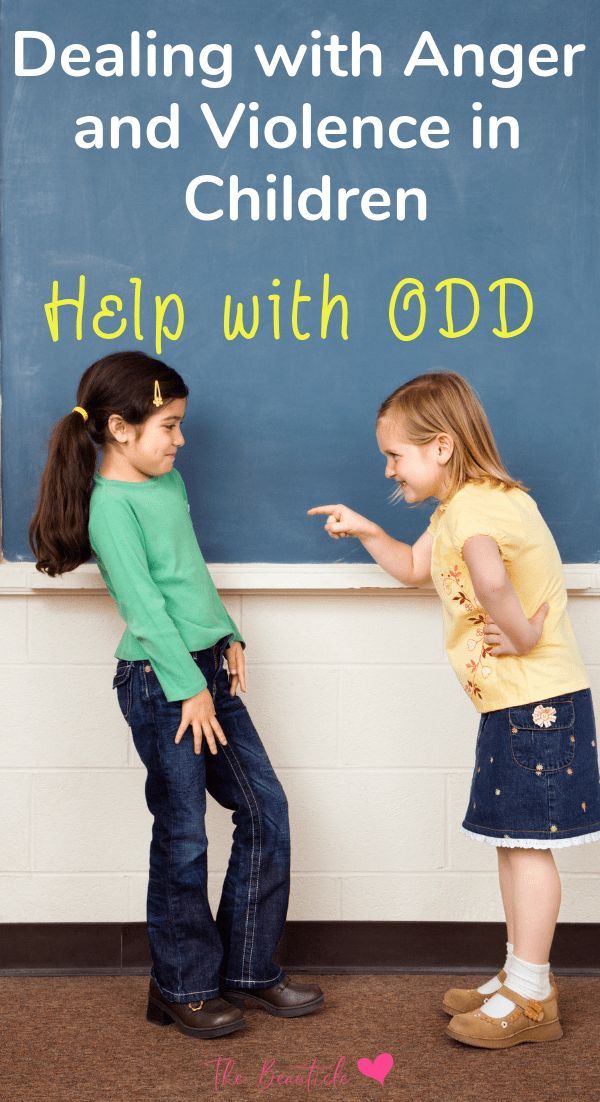 It will pay off in the end, I promise you.
It will pay off in the end, I promise you.
Related content:
10 Ways to Motivate Your Child to Do Better in School
“My Child Refuses to Do Homework” — How to Stop the Nightly Struggle Over School Work
How to cope with unruly children, with a naughty child at school, is there a way out
Date: November 18, 2013 Author: Alina Category: Parents, Teachers 1
Every teacher is familiar with this natural disaster. It is impossible to avoid it. Fighting is useless. It is possible to tame, but not everyone can do it. Because for this you need not only to be a teacher, but also a teacher, even if not with a capital letter, but with an ordinary one. Let not from God (in fact, he is not too generous with such gifts), but at least with a calling. And understanding what's going on.
Contents
-
1 When things get out of hand. There is an exit? They are not born out of control There is an exit?
Such "happiness" exists in almost every class of the average "workers' and peasants'" school.
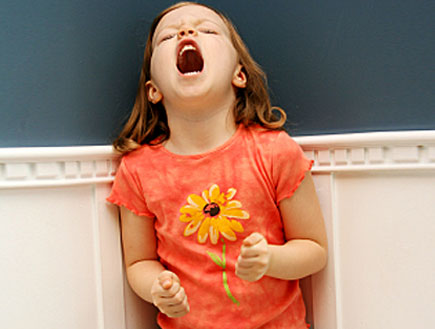 In "cool" lyceums and gymnasiums, especially paid ones, this is easier - there is still a slightly different contingent. If unfortunate incidents happen, they are easier to “resolve”, and get rid of objectionable students. So as not to spoil the overall picture.
In "cool" lyceums and gymnasiums, especially paid ones, this is easier - there is still a slightly different contingent. If unfortunate incidents happen, they are easier to “resolve”, and get rid of objectionable students. So as not to spoil the overall picture. And what about ordinary school teachers? How to respond to defiant behavior, rudeness, swear words, obscene gestures, a special disruption of the lesson? How to control yourself if you want to take a small (or big) bully by the scruff of the neck?
If the face of a bully has already become hateful to you, if the mere mention of him (them) spoils your mood, and every morning you are going to work like hard labor, it is better to leave school right away. Away from sin. Because sooner or later it will happen anyway - you will either leave yourself, driven to despair by “future recidivists”, or you will be fired for assault. Is this what you need? If, on the contrary, you value your place of work and love this profession, but due to lack of experience and knowledge, you don’t understand how to behave in difficult situations, I hope this article will be useful to you.

One is not born uncontrollableA child is not uncontrollable from birth, psychologists say. It is a mechanism that takes root on the basis of something. As a rule, this is when there is no mutual understanding in the family. In other words, a lack of parental attention. Moreover, it can be completely different "etymology". Uncontrollable difficult teenagers can grow up both in marginal or dysfunctional families, and with normal, at first glance, parents. Someone lacks time to communicate with a child because of alcohol and other dubious entertainment, someone is hampered by fatigue after a hard shift against the backdrop of a low universal culture, someone is writing a dissertation or doing business from morning to night. And some people just don't care. The child is fed and clothed, and let the school take care of the upbringing. At the same time, parents do not understand: the child will not wait until they have time and inspiration. Its development does not stop for a minute, regardless of the presence of adults.
And it is desirable to take part in this process - so that there are no unpleasant surprises later. It's like you and your child played the piano four hands, and got distracted, moved away for a long time. And when they returned, they saw with horror something remotely similar to your son or daughter, who, instead of the seventh Schubert serenade, play "Murka". And now they don't care about all your serenades with suites.
When a child grows up and enters "adolescence" with its sharp angles of a physiological and psychological nature, pimples and complexes come out, and almost all children at this age are not gifts. This is normal and will pass with time. But if to these common "charms" of an explosive transitional age is added the lack of understanding and a reliable "rear" (a place where you can not only eat a bowl of soup, but also relax and feel safe) - that is, everything that is united by the concepts “spiritual orphanhood”, instead of a good boy or a golden girl we get “scoundrels”, and almost five minutes before criminals.
 And they are just fighting for survival, as street children did in the 20s of the last century. Just in a slightly different way. Those wanted bread. And this is attention. Places under the sun. At any price.
And they are just fighting for survival, as street children did in the 20s of the last century. Just in a slightly different way. Those wanted bread. And this is attention. Places under the sun. At any price.
Emphasize participationUnruly children are those who are not heard in time. They may study poorly and not take part in school life, but they still have their own interests, there are talents that no one has seen. Nobody cares about their problems. And first of all - to parents. They are not interested. For various reasons, they did not fit into society. And if the child is not involved, anyway, he will somehow attract attention to himself. Hence - and defiant behavior, and disobedience, unwillingness to adhere to generally accepted rules. So the child declares himself and as if says: “I am here, I am.”
Psychologists believe that it is necessary to pay attention to such a child, but not at the expense of the whole class. And the first and most important task of the teacher is to conduct a lesson in such a way that it is interesting for a difficult teenager.
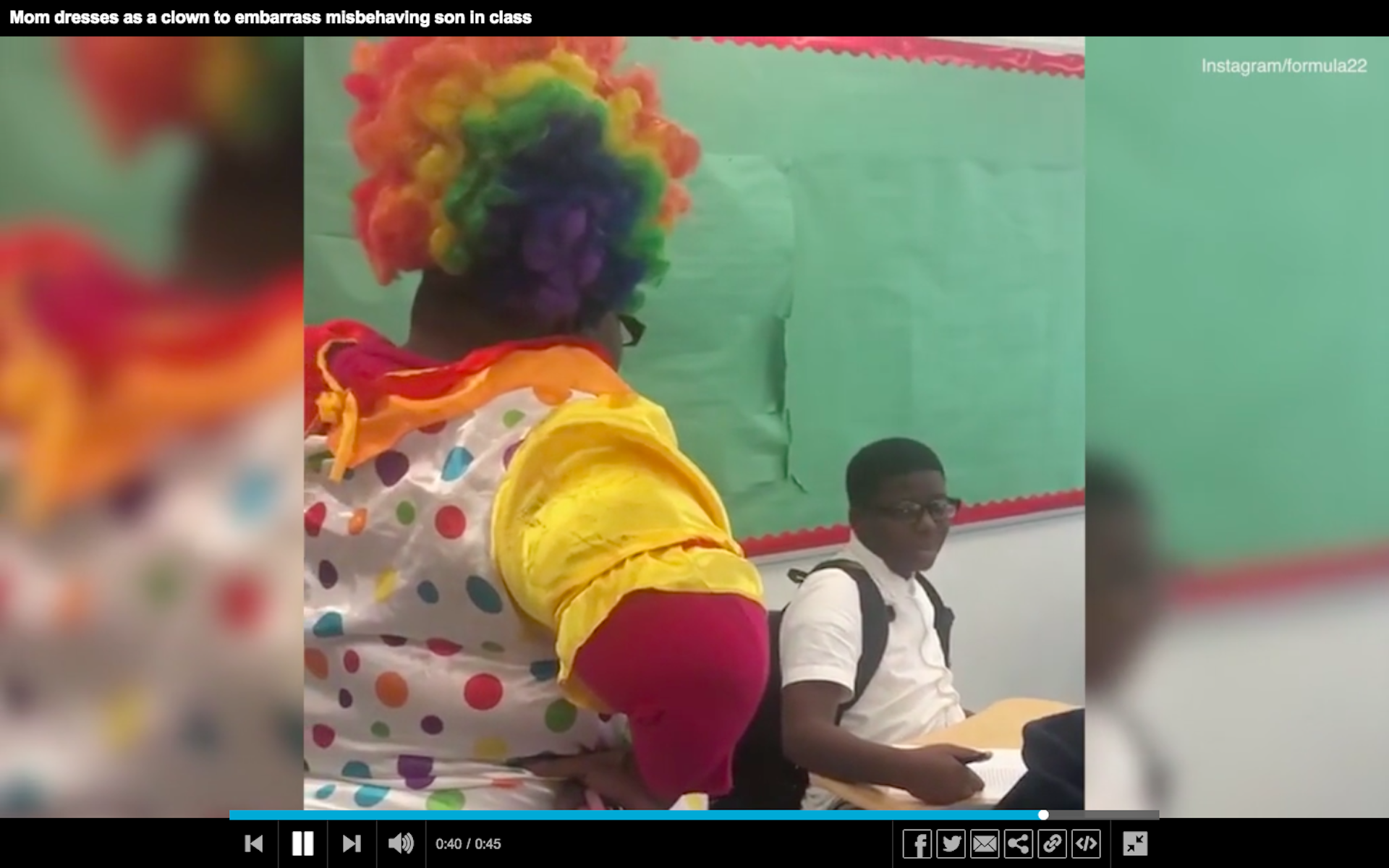 The emphasis should be on participation. For example: well, you have not read this work (or this paragraph). But you heard what we're talking about. We are interested in your thoughts on this. What would you do in this situation? Let him say anything, but on the topic. The main thing is that it be introduced into the process. If these are the exact sciences, for which, say, the child does not have the ability, you can offer to do what is easy for him. You can even suggest a little solution. That is, children in any case should be “pulled up” for the lesson. And teachers often, instead of keeping their attention on the subject, simply succumb to provocations and sort things out with the class or individual student. There is misunderstanding on the one hand. And resistance on the other. And you just need to improve the quality of teaching, make it more interesting. After all, having the desire and skill, any person can be captivated and interested.
The emphasis should be on participation. For example: well, you have not read this work (or this paragraph). But you heard what we're talking about. We are interested in your thoughts on this. What would you do in this situation? Let him say anything, but on the topic. The main thing is that it be introduced into the process. If these are the exact sciences, for which, say, the child does not have the ability, you can offer to do what is easy for him. You can even suggest a little solution. That is, children in any case should be “pulled up” for the lesson. And teachers often, instead of keeping their attention on the subject, simply succumb to provocations and sort things out with the class or individual student. There is misunderstanding on the one hand. And resistance on the other. And you just need to improve the quality of teaching, make it more interesting. After all, having the desire and skill, any person can be captivated and interested. It's easy to say - someone will sigh.
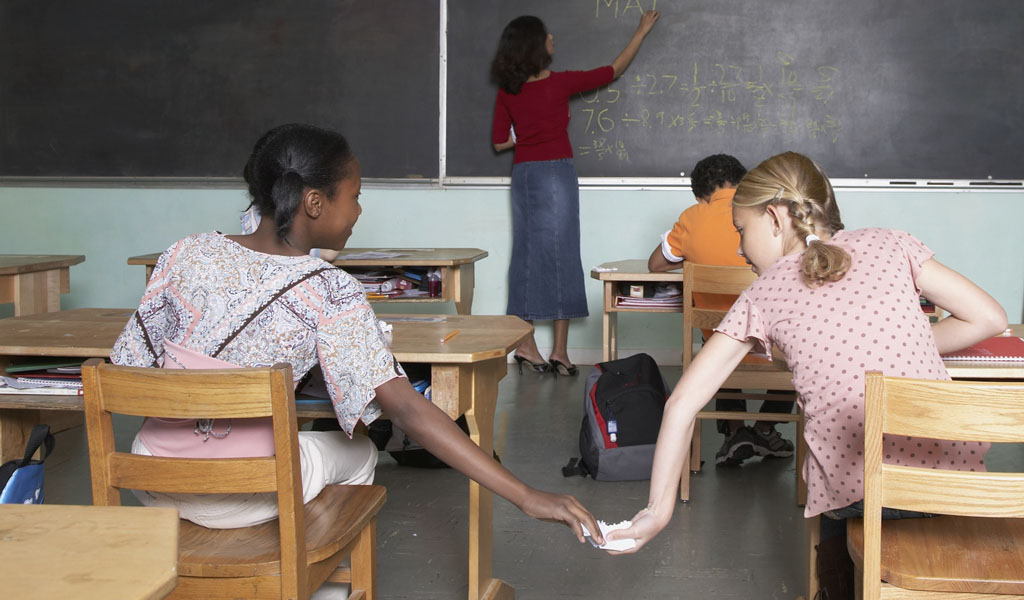 There are impenetrable subjects who cannot be interested in anything and difficult cases when not everything depends on the teacher, no matter how wonderful he is.
There are impenetrable subjects who cannot be interested in anything and difficult cases when not everything depends on the teacher, no matter how wonderful he is. It is imperative to find the cause here. Most often, it is in a family where there have been some kind of curvature for a long time. Cooperation with parents is important. They choose one of the most adequate and try to convey that something needs to be changed. Certain recommendations are given. If there is contact with parents, it is possible that cooperation will result. If parents do not understand, then it is difficult to advise something. In addition, to insist that the child is engaged in some kind of individual group. Rehabilitation still needs to be. It is necessary to decide collectively whether there is an opportunity to pull up such a child. Of course, it is better to do it at school. But without parents it is impossible. At least very difficult. Because the root cause is in them. Usually this is an unrecognized child.
 Most often - beaten at home without explanation. And not only physically. The psychological pressure is even worse.
Most often - beaten at home without explanation. And not only physically. The psychological pressure is even worse.
They are not criminalsSaving such children from the consequences of parental upbringing is a difficult task. And who will do it? At home they are superfluous, in the classroom they interfere. Worst of all, they do not believe that someone needs them. And, unfortunately, this is not far from the truth. In the "wild" west, such children go to rehabilitation groups, where they can speak out and feel that they are understood and heard.
It would be nice if a trained man took care of these children - say, a former athlete who could go hiking with them, go in for extreme sports, because they will no longer embroider and put together puzzles. They have a completely different energy output. Aggression needs to be transformed into something else. And to be recognized somewhere. So that there is a place where they are the best. Schools can also create such groups.

We gain nothing by applying punishment. Such a child needs to be entrusted with something important. Yes, it's hard to trust him. Because he pretends he doesn't need anything. In fact, a person behaves this way only when absolutely necessary. When he gets what he lacks (you just need to recognize what exactly), we get a completely different behavior. These are not criminals. Say, often such children are talented in computer science. So why not trust them to write some kind of program for the school? They will do it with pleasure, because they feel in demand.
- Author: Alina
Rate this article:
(23 votes, average: 2.9 out of 5)
Share with your friends!
Tags:
"He just pisses me off!" How to deal with disobedient students?
Photos: Depositphotos / Illustrations: Julia ZamzhitskayaThere are children who seem to deliberately wake up the “beast” in the teacher: they are daring, swearing, not reacting to remarks.
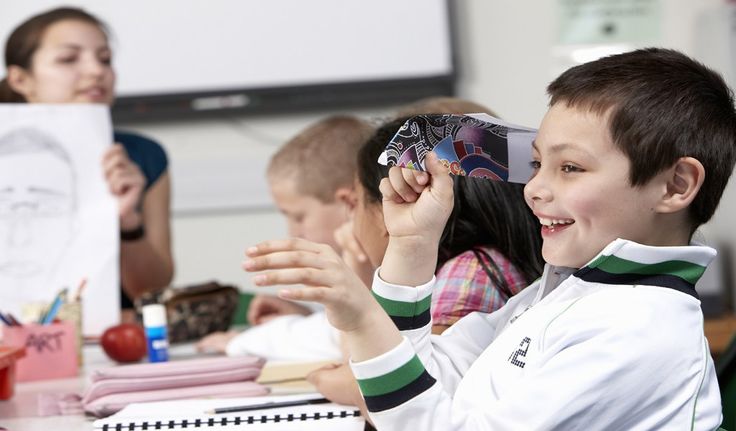 They say about such people: "uncontrollable". Are there medical explanations for difficult behavior? How to organize work and not lose control over yourself if there is such a child in the class? We deal with Russian and Western experts on children's behavioral problems.
They say about such people: "uncontrollable". Are there medical explanations for difficult behavior? How to organize work and not lose control over yourself if there is such a child in the class? We deal with Russian and Western experts on children's behavioral problems. Any reason?
Pupils who put teachers at nothing are not uncommon not only in Russia, but also abroad. Bronwyn Harris, a longtime teacher from Oakland, California, has worked with many troubled students, but nonetheless she was not ready to meet one of them, third grader Antonio:
“Sometimes he would say no before I had even finished asking a question,” recalls Harris. - Once I said: "Hey, you don't even know what I wanted to ask you." He replied, “It doesn't matter. Not!" Another time, the child simply patted him on the shoulder, and Antonio turned around and attacked him, waving his fists.”
Bronwyn Harris contacted the boy's family and learned that he had been diagnosed with Oppositional Defiant Disorder (ODD) - ed.
 ). According to the American Academy of Child and Adolescent Psychiatry, OAD is "a pattern of rebellious, hostile, and defiant behavior directed at authority figures." Children with this diagnosis refuse to cooperate, are defiant and hostile towards their peers, parents, teachers.
). According to the American Academy of Child and Adolescent Psychiatry, OAD is "a pattern of rebellious, hostile, and defiant behavior directed at authority figures." Children with this diagnosis refuse to cooperate, are defiant and hostile towards their peers, parents, teachers. “One of my charges went to a special school for the sole reason that he couldn't control himself. Only in the first grade, he was already expelled from two schools. The child did not obey the teacher, was aggressive with peers, hostile to other adults. He ran out of the classroom, sent “three letters”, flipped desks, put up fights - ignoring the rules was habitual behavior for him, ”says Maria Buryka, a child clinical psychologist, a specialist in working with children with behavioral difficulties.
Get the profession of a teacher-organizer with the additional qualification "Social teacher" at the Training Center of the Teachers' Council.
What's in the program?
— Practice-oriented methods of work of a social pedagogue and an organizing teacher.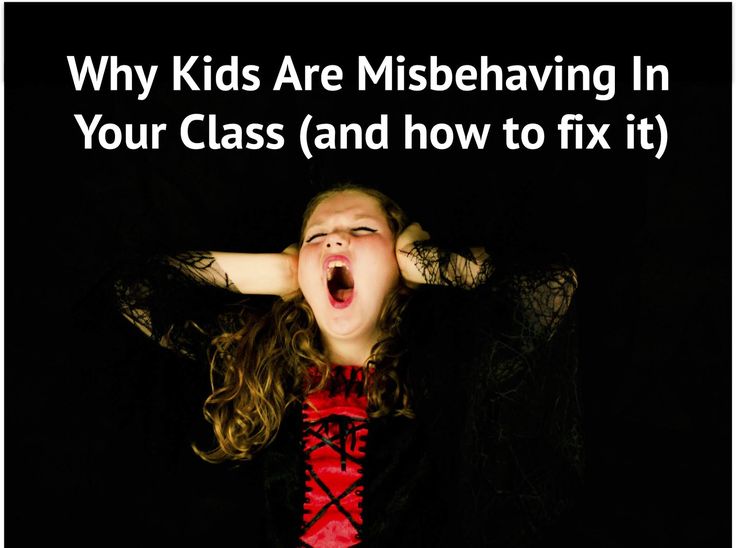
— Methods of social and pedagogical work with children left without parental care and dysfunctional families.
— Support for curators and feedback from teachers.And what is the result?
A new profession and a diploma of professional retraining of the established sample.Installment available.
Find out more
Where does OVR come from?
The causes of the diagnosis of Oppositional Defiant Disorder are not fully understood. Researchers put forward two theories:
- Developmental theory , according to which problems begin when children are still in infancy. Perhaps children and adolescents with ODD were emotionally attached to a parent or other significant adult and had difficulty learning to be independent of them.
- Learning theory which suggests that the negative symptoms of ODD are learned attitudes. Parents and other people in authority over the child use negative reinforcement methods—in short, punishment—to eliminate the unwanted behavior.
 At the same time, only unwanted behavior allows the child to get what he wants: attention and reaction from parents or other people.
At the same time, only unwanted behavior allows the child to get what he wants: attention and reaction from parents or other people.
In both cases, these are children who have received psychological trauma in the early stages of development. Like many of her colleagues, Bronwyn Harris had never heard of OID before, but after studying this diagnosis, she understood why, communicating with Antonio, she felt so exhausted and helpless.
“The difficult behavior of a child with ODD is not a reflection of a personal attitude towards us. This should be treated as a cry for help. These are the children whom adults could not help to cope with themselves, find their place in life, integrate into society. The feelings that arise when interacting with them are sometimes difficult and traumatic, but these experiences are a reflection of what the child himself feels - anger, powerlessness, deep sadness. There are probably no children who would need our acceptance, understanding and help more than others,” Maria Buryka explains.
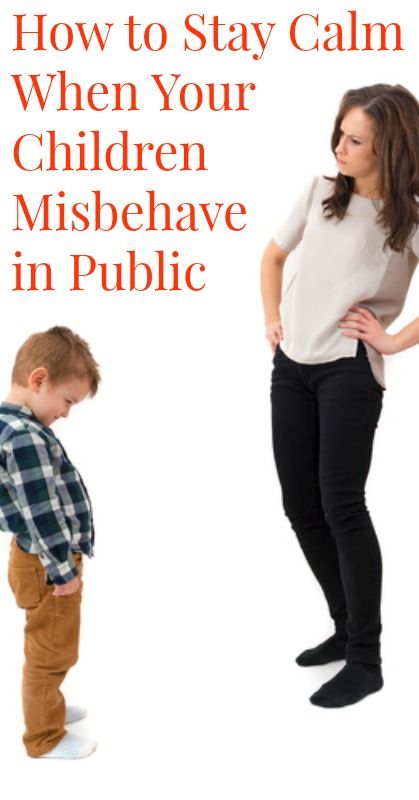
Few have heard of such a diagnosis in Russia either. Although children who potentially have it are quite common. Experts say that it affects between 1 and 16 percent of students, and many of them remain undiagnosed. Despite the fact that most teachers have never worked with children with confirmed ODD, they note that in practice they constantly encounter opposition and disobedience from individual students.
What should a teacher do?
Here are some strategies to help keep the classroom healthy and not lash out at your child.
Set realistic goals.
Let's say you have a student who refuses to sit at a desk and instead makes a row and leaves the class. First determine what behavior you would like to see. Be realistic: if a child is used to leaving the classroom, then just staying in your place is already a big step for him.
Then collect the original data. How often does the child behave in the desired way? Zero percent of the time? Twenty percent?
"Baseline data will help you set smart goals and track growth," says David Anderson, senior director of the Child Brain Institute's Center for ADHD and Destructive Behavioral Disorders.
 - Work to achieve the desired behavior using a combination of positive reinforcement and the predictable consequences of breaking the rules. Don't expect magic. Behavior change is slow and requires constant effort.”
- Work to achieve the desired behavior using a combination of positive reinforcement and the predictable consequences of breaking the rules. Don't expect magic. Behavior change is slow and requires constant effort.” Praise good behavior.
Children who exhibit challenging behavior receive a lot of negative attention. Turn your attention to the positive by giving specific feedback when you notice that the child is doing what you expect from him.
“But be aware that some of them are so accustomed to negative feedback that positive feedback can make them feel insecure. Be careful not to suddenly put them in the spotlight, as this can provoke a defensive reaction in the form of aggression. It may be better to compliment the student in a whisper or talk to him in private,” advises Rachel Lohmann, school counselor at Wake Young Men’s Leadership Academy (Raleigh, North Carolina).
Wait before reacting.
Sometimes teachers unwittingly create conditions for disobedience by assuming the worst about a child.

“We can be so worried that a child will misbehave that we end up provoking him. But in many cases, he may not be going to misbehave. So take a deep breath and don't interfere unnecessarily. You may be able to avoid power struggles altogether, and you will be pleasantly surprised by the good behavior of the child, which can be praised, ”says David Anderson.
Talk to the class.
One student's challenging behavior affects the entire class, so it's important to discuss what's going on.
“One day, when Antonio was out of school, I talked to the class about how some people have more control over their feelings than others,” says Bronwyn Harris. “The students responded very well and were able to ignore his antics later on.”
Remember that students may not be as sensitive to destructive behavior as adults. David Anderson suggests that teachers address children with these words: “We all have moments when we lose our temper or have difficulty following directions.
 This is what we are working on as a class, and our task is to help each other.”
This is what we are working on as a class, and our task is to help each other.” Call for help.
Ask a school psychologist for help. He can unobtrusively observe the student's behavior and his interaction with the teacher, as well as give useful advice on how to level the problem.
“Often these children just lose their temper, not understanding what exactly led to the outburst of anger. I teach them to identify triggers and tell them what to do when they get angry,” says Rachel Lohmann.
Professional retraining
Teacher of additional education with additional qualification "Social teacher"
More →>
Perhaps the psychologist will be able to work with the student individually or recommend a good specialist to his parents, to whom they can turn. It is worth noting that mothers and fathers are not always ready to cooperate with a teacher and a psychologist: they are so overwhelmed and exhausted by their own problems that they perceive with hostility any "interference" from the outside.

Create an emotional communication system.
Work with students to develop a communication system that allows them to communicate when they are at their emotional limits. You can use a scale from 1 to 10, where 10 means "everything is great" and 1 means "everything is very bad." Students can write numbers on cards and give them to the teacher before the lesson without showing them to classmates.
On days when a student is signaling a high level of stress, you can allow him to work at his own pace without drawing too much attention to him.
Sign a contract.
A "behavioral contract" can be made with high school students. It needs to define the behavior you want to see, as well as rewards and consequences for violating the terms of the "contract". At the same time, it is important not to make too high demands.
“If a student does not do his homework, he is more likely to start doing it partially than completely. You can draw the children's attention to the fact that they can ask for help with homework at a designated time.
 Also ask if the child has the opportunity to organize the process of doing homework so that nothing distracts him, ”advises David Anderson.
Also ask if the child has the opportunity to organize the process of doing homework so that nothing distracts him, ”advises David Anderson. Try to understand the "difficult" student.
“Such children are able to press all the emotional “buttons” that the teacher has. Feelings of dislike and frustration are a normal human reaction to constant defiance. However, it is important to understand that they are still children. Put yourself in their place and think about what it's like to have that level of anger and frustration all the time, not to have friends. And then you can start developing a relationship with your child,” says Rachel Lohmann.
In the experience of an educator, when children with oppositional behavior disorder trust their teachers and feel that they really want to help, they finally become cooperative and the level of "naughty" is reduced.
Related materials:
- The teacher strikes.










